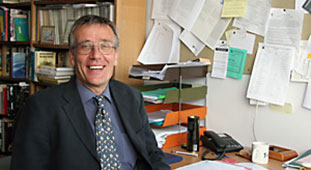`Dundee and the Empire’ – public event November 12th
Published On Fri 7 Nov 2014 by Roddy Isles

The forces of globalisation and how they affect us all is a modern day issue for people around the world but the same questions were critical to Dundee in the early years of the 20th century.
It was a time when Dundee was perhaps the most economically globalised city in the world, with a prosperous jute industry facing threats from abroad.
That relationship of Dundee to the rest of the world, and particularly the British Empire, will be explored by Professor Jim Tomlinson at a public event at the University of Dundee next week.
Professor Tomlinson, formerly of the University of Dundee but now based at Glasgow University, will be launching his new book `Dundee and the Empire: ‘Juteopolis’ 1850-1939’ on Wednesday 12th November. The event takes place in the D’Arcy Thompson Lecture Theatre at the University of Dundee at 6pm and is jointly sponsored by the Arts and Humanities Research Institute and the Scottish Centre for Global History.
The book, published by Edinburgh University Press, caps a series of individual and collaborative projects through which Professor Tomlinson has reinterpreted Dundee’s relationship to the world.
In his lecture, Professor Tomlinson will ask how the people of Dundee responded to the challenges of being the most economically globalised city in the world in the years before the First World War.
The answer to this question is complicated by the fact that the aspect of globalisation which impacted most directly on the ordinary inhabitants of Dundee was competition in the jute industry from Calcutta, a city within the British Empire of the early 20th century. Dundee had to cope not only with powerful low-wage competition in its staple industry, but the political reality that for decision-makers in London the fate of the British Empire in India was far more important than the economic well-being of a small Scottish city.
The history of Dundee’s response to these challenges combines global economic history with analysis of imperial relations, including how these issues were understood by ordinary Dundonians, as well as by politicians and policy-makers.
To mark the launch Edinburgh University Press will offer a discount of 50% on copies of the book sold at the event.
Roddy Isles
Head of Press
TEL: 01382 384910
MOBILE: 07800 581902
E-MAIL: r.isles@dundee.ac.uk